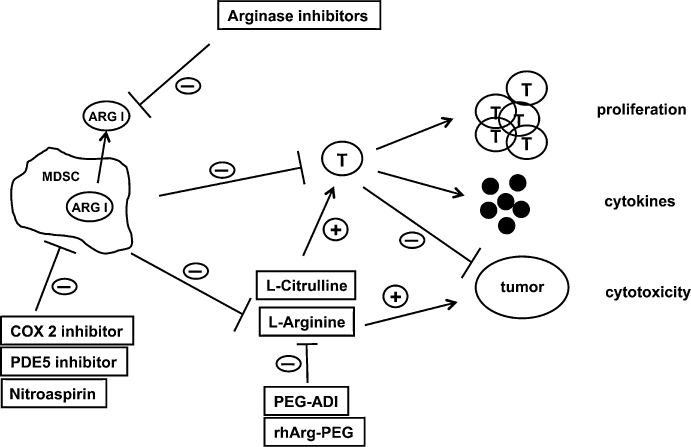Figure 3.

Opposing roles of L-arginine in tumour biology. L-arginine can directly support tumour growth and myeloidcell arginase-mediated or pharmacological depletion (PEG-ADI/rhArg-PEG) of the amino acid inhibits tumour growth. L-arginine deficiency, in contrast, can also suppress anti-tumour immune responses by down-regulating key functions of T lymphocytes. Pharmacological interference with arginase-mediated L-arginine depletion is demonstrated here in the context of myeloid-derived suppressor cell (MDSC)-associated immune suppression. T cell functions are restored by direct inhibition of cell-bound or liberated arginase I by arginase inhibitors, by supplementation of L-arginine or L-citrulline (for regeneration of L-arginine via the L-citrulline-L-arginine cycle) and by inhibition of various arginase-inducing mechanisms in MDSC. ARG I, arginase I; COX 2, cyclooxygenase 2; PDE5, phosphodiesterase 5; PEG-ADI, pegylated arginine deiminase; rhArg-PEG, recombinant human pegylated arginase; T, T lymphocyte.
